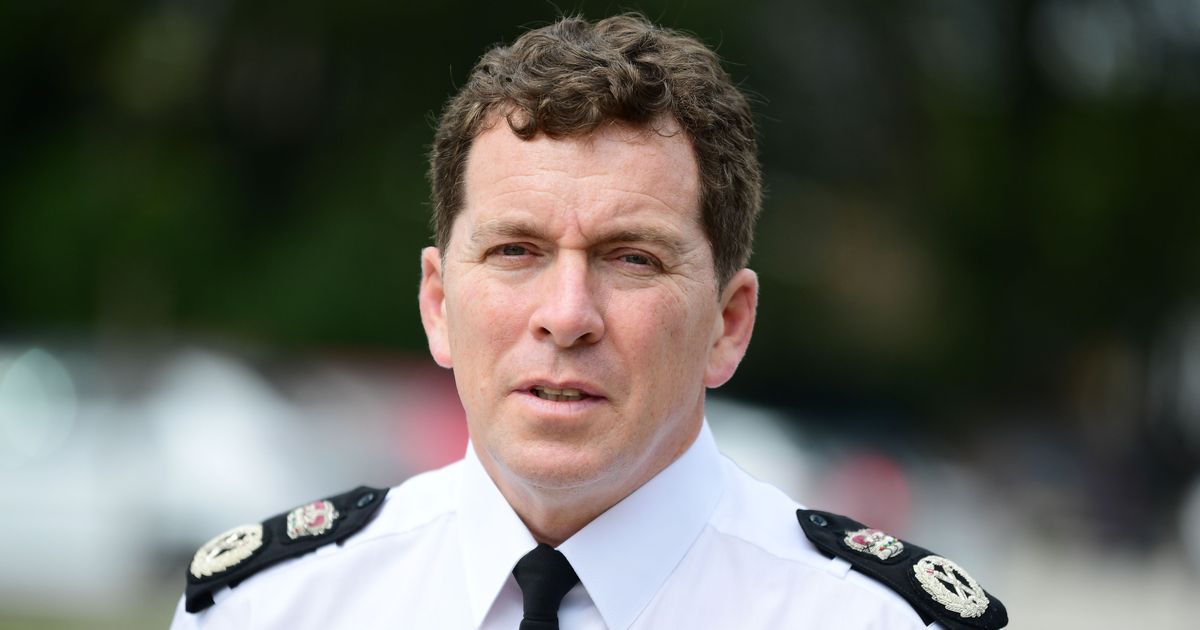Merseyside’s new chief constable Rob Carden spoke to the ECHO ahead of taking on the new role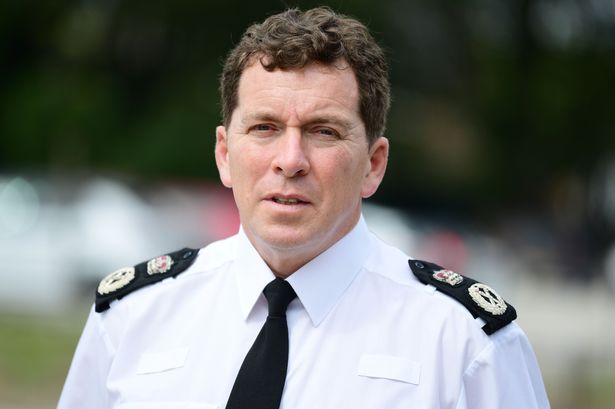 Merseyside Police new chief constable Rob Carden(Image: Andrew Teebay)
Merseyside Police new chief constable Rob Carden(Image: Andrew Teebay)
Merseyside’s new top police officer said policing needs to catch up with technology or risk being left behind – but admits the force faces a stormy future with £31m of cuts needed. Rob Carden became the new chief constable of Merseyside Police today, Monday, taking over from his predecessor Serena Kennedy who announced she was stepping down earlier this year.
The son of a former police inspector and maternity nurse at the women’s hospital said he is “very comfortable and proud” to be a public servant. In his first interview with the ECHO ahead of taking on the new role, chief constable Carden championed the use of technology, including facial recognition, to allow police officers to spend more time out on the beat.
He added the force, and wider policing, needed to keep pace with technology, including being “more agile” in providing information so they could compete with social media and the rise in misinformation. The new chief constable was also honest in the challenges Merseyside Police will face as the force will need to find savings of £31m in the next four to five years.
Chief constable Carden, an Everton season ticket holder, joined Merseyside Police in 1992 and recorded a distinguished career, working as a strategic firearms commander in the wake of the women’s hospital terrorist bombing and as gold commander for the Grand National on four occasions.
He left Merseyside Police to join Cumbria Constabulary where he went on to become chief constable. But he said the opportunity to return to his home force was one he couldn’t turn down. Speaking to the ECHO at the force’s Mather Avenue training academy, he said: “We’re sitting overlooking a field where I used to look at the dogs and mounted officers when my dad looked after the estate.
“I know the force, I know the area and I know the people. There’s some great people here. If I didn’t apply for the opportunity, I would have regretted it deeply. My aim now is to repay the faith that Emily Spurrell, the police and crime commissioner, has given me.”
He added: “I’m the son of a public servant. I’m very comfortable with where I sit in the pecking order. The chief constable is underneath the community…I’m very comfortable with that. I’m proud to be here.”
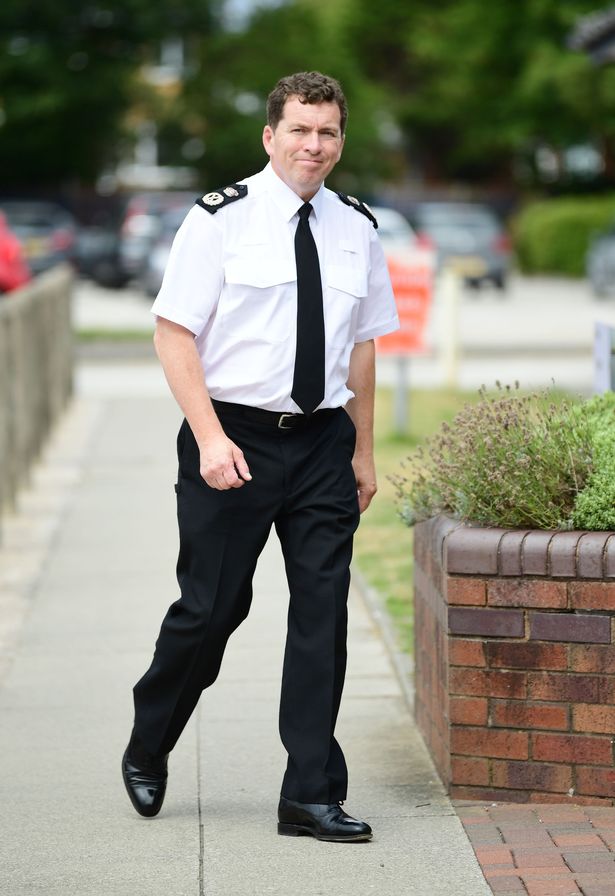 Merseyside Police new chief constable Rob Carden(Image: Andrew Teebay)
Merseyside Police new chief constable Rob Carden(Image: Andrew Teebay)
What should the people of Merseyside expect from the new top cop? “I’ve learned a lot when I was [chief constable in Cumbria] and I’m hoping I can apply what I already know,” he said. “I live here, my family lives here. From a selfish point of view, I’m a stakeholder, so I need it to do well for selfish reasons, but from a professional perspective, I want it to be the best force in the country…
“I think people are expecting some changes. I think some change is inevitable. Serena Kennedy has done a really fine job as the outgoing chief constable. My job is to build on that legacy and look to where I can make improvements.”
Chief constable Carden said one of the forces main focuses was going to be neighbourhood policing which he hopes will improve public trust and confidence in the force. He said: “It’s a national policing problem, so that has to be my focus. So I’ve got to be improved performance. I’ve got to make things just a better service for the public, but they’ve got to feel it’s better themselves, they’ve got to feel safer.”
The top officer said Merseyside Police has regularly been graded as outstanding in its response to tackling organised crime. However, he added: “Policing needs to become more effective in terms of its links with communities…and that all stems from excellence in the basics.
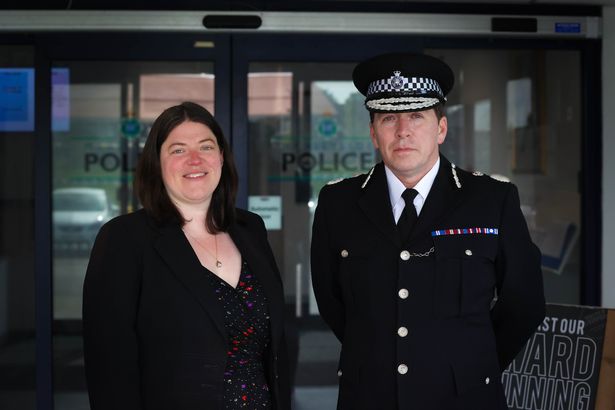 Police and crime commissioner Emily Spurrell with the new chief constable Rob Carden(Image: Merseyside Police and Crime Commissioner )
Police and crime commissioner Emily Spurrell with the new chief constable Rob Carden(Image: Merseyside Police and Crime Commissioner )
“If you ring the police over a lower level issue, a lower level crime, and we don’t respond in the time that we said we would, when more serious things come, you’re not going to have the confidence to come forward then.” But he added: “You can’t continue doing the same thing and still take £31m out with the aspiration of being better.”
Asked how he would ensure the force would keep up with demand, the new chief constable said policing as a whole needed to keep pace with technology. The national police lead for digital data and technology said: “Demand has become more complex. It’s more severe. So we have to find ways of being smarter in terms of policing. One of those ways is technology.
“I know, for instance, facial recognition, redaction tools, they’re great ways of freeing up officer time and providing more opportunities for officers and police staff back on the beat with the aim of improving confidence.”
He said the public could be reassured about facial recognition, which has come under criticism due to its use by the Metropolitan Police at Notting Hill Carnival. He said: “I know how beneficial it is, but technology has to move forward with the confidence of people.
“We’ve got to reassure them that the data is used properly.” He added: “The current policing model does not lend itself to moving at the pace we need.”
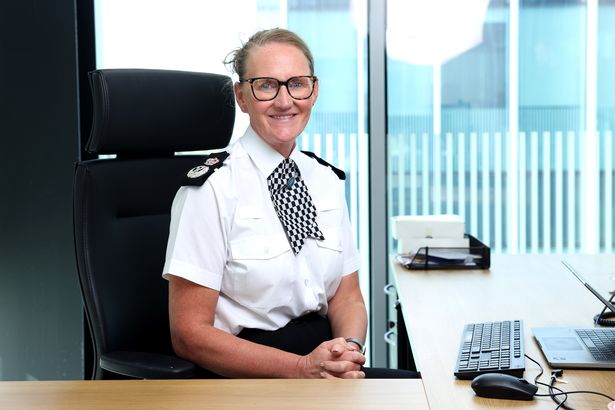 Rob Carden’s predecessor Serena Kennedy(Image: Iain Watts)
Rob Carden’s predecessor Serena Kennedy(Image: Iain Watts)
Addressing both the possibilities and the challenges of social media, he said: “With social media, more things go out in the public realm at a swifter pace. The police reaction has to be the same. We’ve got to match that. We’ve got to be more agile in terms of the provision of information.
“As part of that, we’ve got to be transparent, with the right consultation, so people understand the reasons why we’re doing things. There are lots of differing views in a complex, quite uncertain world at the moment, as we’re seeing community tensions ebb and flow. All we can do is police and use legislation without fear or favour in a transparent way, with ethical policing that takes the advice and listens to communities.”
And when asked about accusations of a two-tier policing and justice system, he told the ECHO people “have got to make their own minds up”. He said: “It’s not for me to tell them what to think. My focus is on policing and what policing can do.”
